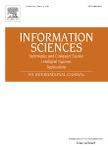版权所有:内蒙古大学图书馆 技术提供:维普资讯• 智图
内蒙古自治区呼和浩特市赛罕区大学西街235号 邮编: 010021

作者机构:School of Business Istanbul Medipol University Istanbul Turkey Department of Economics and Management Khazar University Baku Azerbaijan Istiqlaliyyat Str. 6 BakuAZ1141 Azerbaijan IMU Vocational School Istanbul Medipol University Istanbul Turkey School of Communication Istanbul Medipol University Istanbul Turkey Department of Industrial Engineering Turkish Naval Academy National Defence University Tuzla Istanbul34942 Turkey Department of Computer Science and Engineering College of Informatics Korea University 145 Anam-ro Seongbuk-gu Seoul02841 Cuba Department of Information Technologies Western Caspian University Baku1001 Azerbaijan School of Mathematical Sciences Anhui University Anhui Hefei230601 China Division of Graduate Studies and Research Tijuana Institute of Technology Tijuana Mexico
出 版 物:《Information Sciences》 (Inf Sci)
年 卷 期:2025年第718卷
核心收录:
学科分类:12[管理学] 1202[管理学-工商管理] 1201[管理学-管理科学与工程(可授管理学、工学学位)] 08[工学] 0837[工学-安全科学与工程] 0835[工学-软件工程] 0701[理学-数学] 0812[工学-计算机科学与技术(可授工学、理学学位)]
主 题:Particle swarm optimization (PSO)
摘 要:Determining the most critical performance indicators of renewable energy technology investments is necessary for different purposes, such as successful strategic planning and correct identification and management of risks. However, there are limited studies in the literature in this context. This issue demonstrates that there is a significant gap in the literature on this subject. Accordingly, the purpose of this study is to identify effective investment strategies to improve renewable energy technologies. The first stage is related to the constructing the balanced expert dataset using Q-learning algorithm. The next stage consists of weighting the criteria with molecular fuzzy cognitive maps. The final section ranks the alternatives with molecular fuzzy multi-objective particle swarm optimization. The main contribution of this study is the optimization of investment strategies with a novel decision-making model. Integration of molecular geometry into multi-criteria decision-making analysis provides various advantages, especially in modelling complex systems, such as more effective uncertainty management and implication the normalization process better. The findings denote that innovative solutions are determined as the most important criterion in increasing the performance of renewable energy technologies. Lifecycle efficiency is another important variable in increasing the performance of renewable energy technologies. Moreover, developing circular models of decentralized energy systems is found as the most essential circular economy-oriented investment alternative for renewable energy technologies. © 2025 Elsevier Inc.